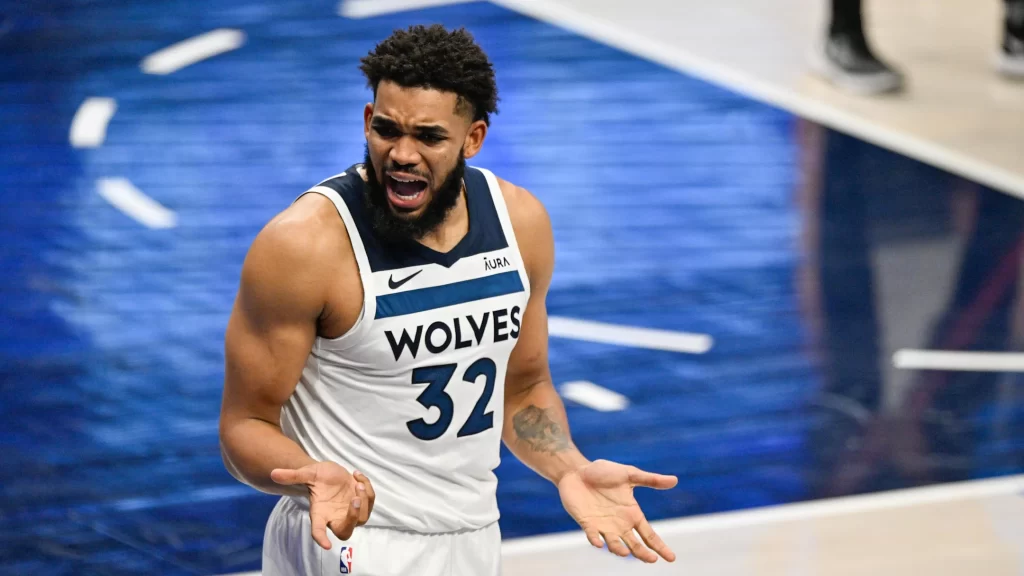
Following the Minnesota Timberwolves’ conference finals defeat by the Dallas Mavericks, attention turned to Karl-Anthony Towns. His impressive performance in the conference semifinals against the Denver Nuggets, where he averaged 18.6 points per game and showcased solid defense against Nikola Jokic, was overshadowed by a disappointing showing against the Mavericks.
Towns shot just 37.9% from the field and 24.2% from three-point range in that series. After the Timberwolves’ elimination, he remarked, “It’s going to be good for us to take this experience … to understand the discipline we’re going to need to make a deep run,” adding, “the plan is to be here [next season].”
However, that plan has changed. On Friday, the Timberwolves finalized a deal that will send Towns, a four-time All-Star, to the New York Knicks in exchange for Julius Randle, Donte DiVincenzo, and a future first-round pick.
The trade has raised eyebrows across the NBA and social media. Many are questioning why Minnesota would trade its All-NBA big man just months after reaching its first conference finals in two decades, especially with a roster that seemed poised for growth. Despite his polarizing reputation, Towns is a consistent scorer, averaging around 20 points per game, shooting about 50% from the field, and 40% from beyond the arc.
From New York’s perspective, the move makes more sense. The Knicks have pursued Towns for several years, particularly after Jalen Brunson’s emergence as a key player, which shifted the team’s status toward contention. Brunson’s strong performance last season heightened the need for a versatile, floor-spacing lineup, and Towns, who shot 41.6% from three-point range last season, fits that requirement as a pick-and-roll player who has improved every offense he has been part of.
The urgency for this trade may have been exacerbated by Mitchell Robinson’s recent injury, which is expected to keep him sidelined for a couple of months due to ankle surgery. With Isaiah Hartenstein moving to the Oklahoma City Thunder, the Knicks found themselves thin in the center position. Randle was expected to start, although Knicks coach Tom Thibodeau was not keen on utilizing him as a full-time center. The Knicks had previously been reluctant to include DiVincenzo in trade discussions, but the need for a solution in the middle prompted this deal.
If healthy, Towns, who has faced injury challenges in recent years, addresses this need. He is a reliable rebounder and can play a substantial number of minutes—averaging 35.6 per game during the 2017–18 season under Thibodeau. Reports suggest Thibodeau is eager to coach Towns again, envisioning him as a seamless fit in the Knicks’ rotation.
However, there are potential defensive concerns, and it remains to be seen how Towns, known for his laid-back demeanor, will adapt to the demanding New York media landscape. The Knicks will also feel the absence of DiVincenzo, a player projected to contend for Sixth Man of the Year honors this season. Nonetheless, the basketball logic behind the trade appears sound.
For the Timberwolves, the reasoning is less clear. Rival executives reacted quickly to the news, speculating that the primary motivation was financial. Towns has four years remaining on his contract, valued at $220.4 million, a hefty sum considering the large contracts for Anthony Edwards and Rudy Gobert. With Minnesota’s ownership embroiled in a power struggle, there have been indications that the franchise may not continue to spend freely. By trading Towns, they gain considerable financial relief.
In terms of basketball strategy, it’s harder to envision how the Timberwolves will improve. They may promote Randle to Towns’ starting position, elevate Naz Reid’s role, and utilize DiVincenzo to fill a gap left by Kyle Anderson’s exit. However, Randle’s shooting numbers do not match Towns’; he shot 31.1% from three last season and has generally struggled to be an effective perimeter threat, potentially clogging the lane alongside Gobert. Furthermore, with Randle entering a crucial contract year, his performance will be under scrutiny.
Overall, it is challenging to view this as anything but a setback for Minnesota. In a competitive Western Conference, where a few wins can separate a top-four seed from a play-in spot, any step back can have significant consequences. The Timberwolves, having advanced to the conference finals, seem to be dismantling their success at a puzzling time.
